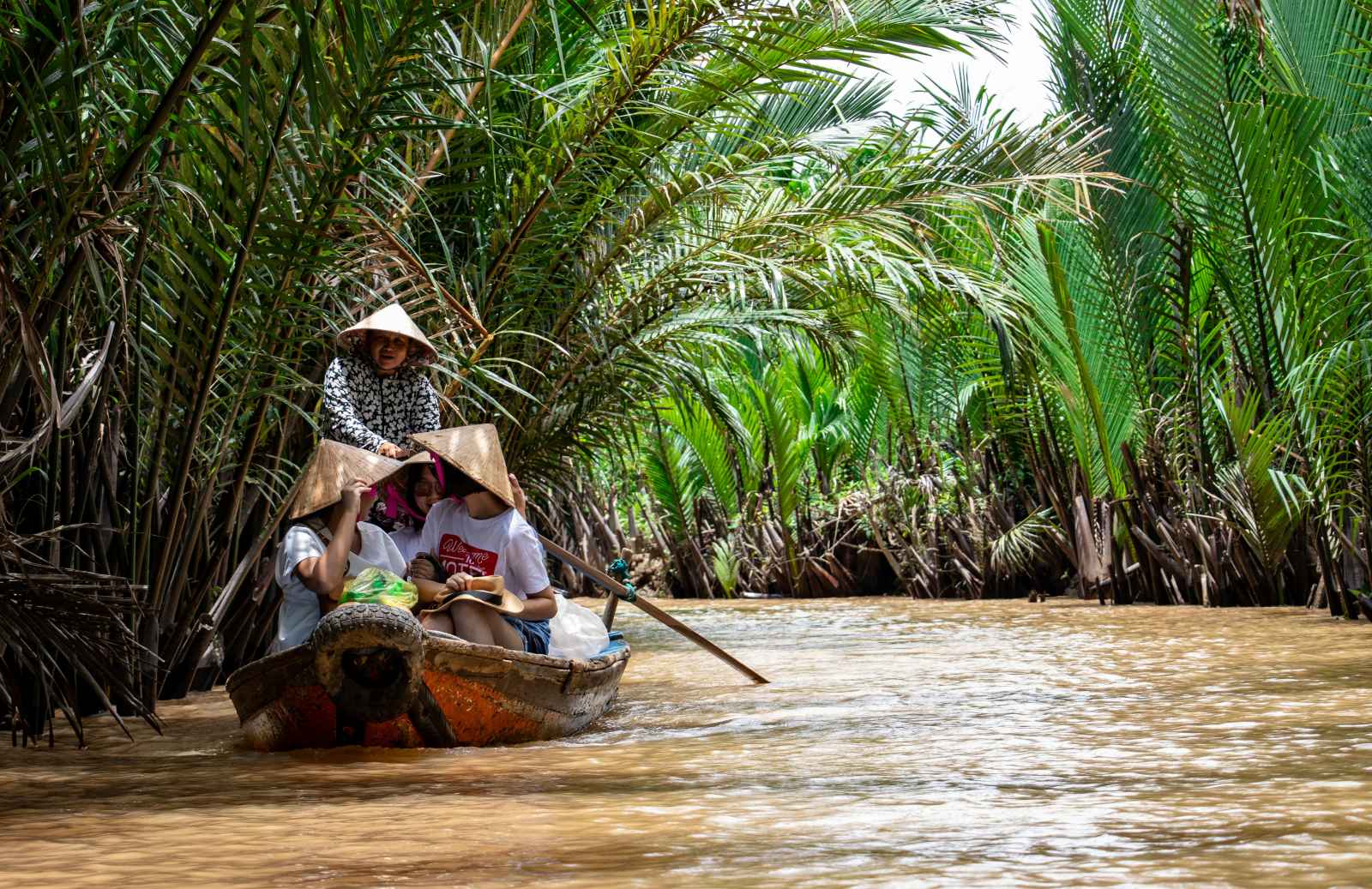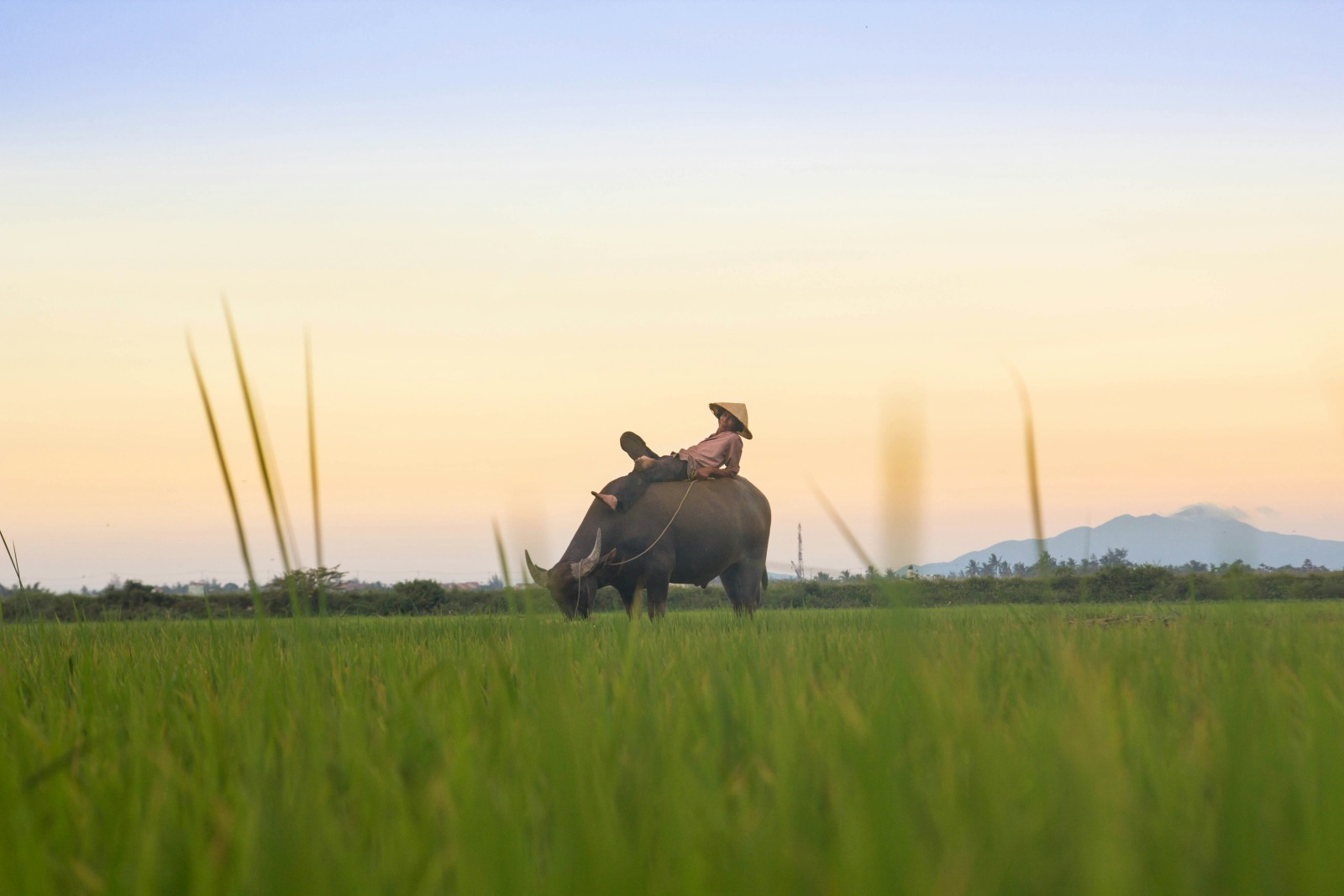W Coffee Talk Booking.com’s Varun Grover: As Expectations Rise, Vietnam Steps Up
In this week’s edition of W Coffee Talk, Varun Grover – Country Head, Vietnam at Booking.com, unpacks key shifts shaping the future of travel. From the evolving expectations of international travelers to Vietnam, to the rising influence of Gen Z, the growing impact of technology, and the central role of sustainability in hospitality, his insights offer practical guidance for accommodation providers in Vietnam. These perspectives not only highlight emerging opportunities and new source markets; but also underscore how to deliver meaningful, connection-driven experiences for today’s global travelers.

How do you assess the changes in international travelers’ expectations for Vietnam in recent years?
Over the past few years, we’ve seen a clear evolution in what international travelers seek from their journeys to Vietnam. While iconic sites and rich cultural heritage remain key draws, today’s travelers are increasingly looking for experiences that are more meaningful, sustainable, and emotionally enriching.
Our recent Travel Predictions 2025 research shows that travelers are rewriting the rules of conventional vacations. They’re seeking authentic, off-the-beaten-path adventures, as well as deeper connections with nature, local communities, and even themselves.
Vietnam is exceptionally well-positioned to respond to these new expectations. From stargazing excursions under dark skies to vintage-inspired travel and longevity-focused wellness retreats, Vietnam offers travelers the space, both literally and emotionally, to escape the pace of modern life for immersing in nature, reflecting on personal well-being, and bringing home stories that go beyond surface-level sightseeing.
In short, Vietnam enables a different kind of travel, one that fosters reconnection with what truly matters.
 Ảnh: Giau Tran
Ảnh: Giau Tran
What do you see as the most notable differences in the behavior of Vietnamese travelers compared to those in other markets in the region?
Based on our 2025 Travel Trends data, a majority (88%) of Vietnamese travelers are feeling optimistic about travel in 2025, surpassing the global average of 77%.
The most preferred trip types for Vietnamese travelers in 2025 include nature trips, favored by 59%, and beach trips, chosen by 56%, closely followed by trips to cultural attractions at 47% and city trips at 45%; which largely mirrors the broader APAC trend where nature and city trips are also highly preferred. When considering accommodations, Vietnamese travelers, much like their APAC counterparts, are seeking a diverse mix of traditional and alternative options, with 65% likely to choose hotels, 39% opting for resorts, 34% interested in exploring vacation homes, and 27% considering apartments.
When it comes to travel inspiration, Vietnamese travelers look for a blend of old and new in decision making. Digital tools like AI-powered itineraries (31%), social media (68%), travel booking websites (41%) and TV shows/ movies (33%) and are gaining traction, many also rely on recommendations and word-of-mouth from friends and family (57%), newspaper/magazine ads (30%) and traditional tour operators (29%) for travel inspiration.

How has Vietnam’s Gen Z been changing their travel habits? How has Booking.com adjusted its strategy to meet the needs of this customer segment?
I think Vietnam’s Gen Z travelers are reshaping the travel landscape with their distinct values and behaviors. They are highly social, travel with friends more than any other generation, actively seek out music festivals, cultural events and nature-based escapes, and plan trips around social media inspiration.
At the same time, they’re cost-conscious, open to new technologies like AI, and deeply motivated by local experiences, from street food to hidden cafés. What makes this segment exciting is how intentional and expressive they are in how they travel. Above all, they’re serious about curating stories worth sharing, like capturing breathtaking stargazing moments in dark-sky destinations or hunting for vintage treasures. We also see that Gen Z travelers in Vietnam book more trip components online, especially popular ones like hotels, attractions, car rentals, event tickets etc.
So, to support their evolving needs, Booking.com is expanding our Connected Trip offering, designed to deliver flexible and seamless planning.
Gen Z has high expectations for AI and digital technology in travel activities. What interesting insights has Booking.com observed from this new habit?
At Booking.com, we see this generation actively turning to AI not only to save time, but to personalize every step.
In fact, our Travel Trends 2025 data found that 47% of Vietnamese Gen Z say they will use AI to create a detailed itinerary plan their trips in 2025, nearly half already use AI for travel safety tips (46%) and for researching destinations in depth, from local culture to current affairs (47%). Gen Z travelers in Vietnam show high confidence (83%) in using AI and are increasingly using it to travel more responsibly, such as choosing lesser-known destinations, avoiding over-tourism, and learning about local customs.
For us, this reinforces the role of tools like our AI Trip Planner: not to replace intuition, but to empower it.
Because Gen Z isn’t looking for automation, they’re looking for understanding.
Booking.com has just launched the flight booking feature in Vietnam. Could you share Booking.com’s vision for integrating multiple services on one platform to enhance customer experience? How has the market responded to this change?
Our vision is simple: To make travel more seamless by bringing every element of the journey into one place.
We know that fragmented bookings often create friction, especially when plans change. By integrating flights, we’re helping travelers save time through a streamlined search across 500+ airlines to 4,500 destinations, with transparent pricing and no hidden fees. Flexibility comes from options like virtual interlining between carriers, self-transfer guarantees, and fare types that accommodate changes. And by having every trip component in one place, travelers gain more control – from itinerary planning to post-booking support, including 24/7 customer service in English and assistance in 12 other languages.
At the recent HVC 2025 conference, you said, “Sustainable tourism is not just a trend – it is a core foundation in our strategy.” How is Booking.com working with partners in Vietnam to realize this? And how can Vietnamese hotels leverage sustainability as a true business advantage?
Sustainability is no longer a “nice to have” – it’s becoming a deciding factor in how travelers choose where to stay.
At Booking.com, we want to make it easier for everyone to experience the world. But we also believe we have a responsibility to help ensure there’s always a world worth experiencing. Supporting accommodation partners on their sustainability journey is just one part of that commitment.
 Ảnh: Tomáš Malík
Ảnh: Tomáš Malík
Currently, we display third-party sustainability certifications for over 18,000 properties worldwide, covering efforts like reducing emissions, conserving water and energy, minimizing waste, and giving back to local communities. Many independent certification labels are also recognized on our platform as we believe third-party standards are among the most credible ways to acknowledge meaningful progress. We also provide tailored insights that guide partners towards third-party certifications, as well as targeted tips and resources related to the actions they could start taking.
We also focus on education and collaboration by providing free online training in partnership with UN Tourism to help hospitality businesses learn about key sustainability topics. Another global organization we collaborate with are Global Sustainable Tourism Council and the Travalyst coalition to support more consistent and transparent standards across the industry.
As travelers become more conscious of the impact of their choices, sustainability is now becoming a signal of long-term trust. For Vietnamese hotels, this presents a timely opportunity to align with evolving guest expectations and future-proof their business.
 Ảnh: Kiril Dobrev
Ảnh: Kiril Dobrev
Booking.com has recorded a rapid increase in visitors from the Middle East to Vietnam, and as I understand, new international markets like India and the Middle East have specific requirements. In your view, what should accommodation providers prepare and pay attention to in order to attract and welcome these guest segments?
Properties that succeed with these markets often take time to understand guest habits, like how they travel (as couples, families, or in larger groups) or what they prioritize (flexibility, privacy, dining options). These insights can inform simple adjustments in communication, room setup, or service tone that turn a first-time stay into a long-term relationship.
At Booking.com, we want to create a positive travel experience for everyone. We help partners cater to diverse travelers by offering a platform for multilingual communication, diverse content, personalised experiences and cultural sensitivity. We encourage partners to be mindful of cultural sensitivities, such as accommodating specific dietary restrictions or religious practices. Our platform often highlights local cultural attractions, cuisine and events, allowing travelers to connect with the unique culture of their destination.
Ultimately, welcoming new markets is being intentional in how you meet guests where they are and showing them they matter.



